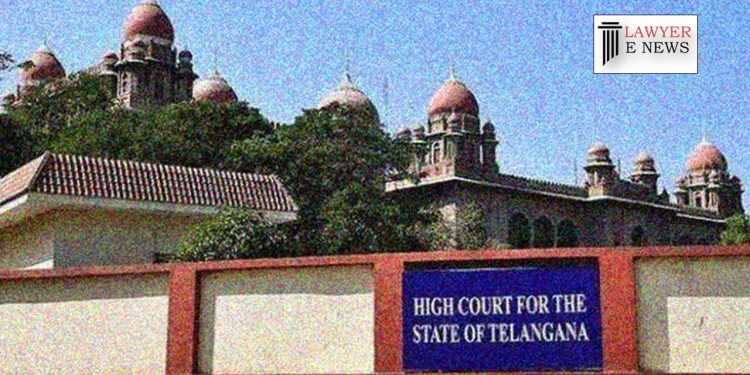-
by sayum
17 February 2026 5:39 AM



In a significant ruling that throws light on the applicability of the Hindu Marriage Act, 1956 to Scheduled Tribes, the High Court for the State of Telangana has set aside the order of the Senior Civil Judge, Kamareddy. The original petition for mutual consent divorce, filed under Section 13(B) of the Act by a couple belonging to the Lambada Scheduled Tribe, was returned for want of jurisdiction.
The case, titled Kadavath Srikanth vs. Kadavath Ashwitha @ Jadav Preethilekha, was presided over by Hon’ble Sri Justice Laxmi Narayana Alishetty. The judgment, pronounced on January 22, 2024, delved into whether the Hindu Marriage Act, 1956, applies to members of Scheduled Tribes who follow Hindu customs.
In his ruling, Justice Alishetty noted, “It is relevant to refer to Section 2(2) of the Act, which shows the nonapplicability of the Act to the members of any Scheduled Tribe unless the Central Government, by notification in the official Gazette, otherwise directs.” He further emphasized the significance of Article 366 of the Constitution in defining Scheduled Tribes.
The Court also referred to several pivotal judgments, Including Labishwar Manjhi v. Pran Manjhi and Satprakash Meena v. Alka Meena, to highlight instances where Hindu statutes were applied to members of Scheduled Tribes following Hindu customs.
Justice Alishetty observed, “The parties are following Hindu traditions, customs and that they are substantially Hinduised,” affirming the necessity to consider the customs followed by the couple in determining the applicability of the Hindu Marriage Act.
The Civil Revision Petition was allowed, with the Court setting aside the impugned order and directing the trial Court to number the petition and decide it in accordance with law, considering the material on record. The judge clarified, “This Court has not expressed a general opinion on the applicability of Section 2(2) of the Act to the O.Ps. filed by the persons belonging to Scheduled Tribe Community.”
Date of Decision: 22.01.2024
Kadavath Srikanth VS Kadavath Ashwitha @ Jadav Preethilekha
